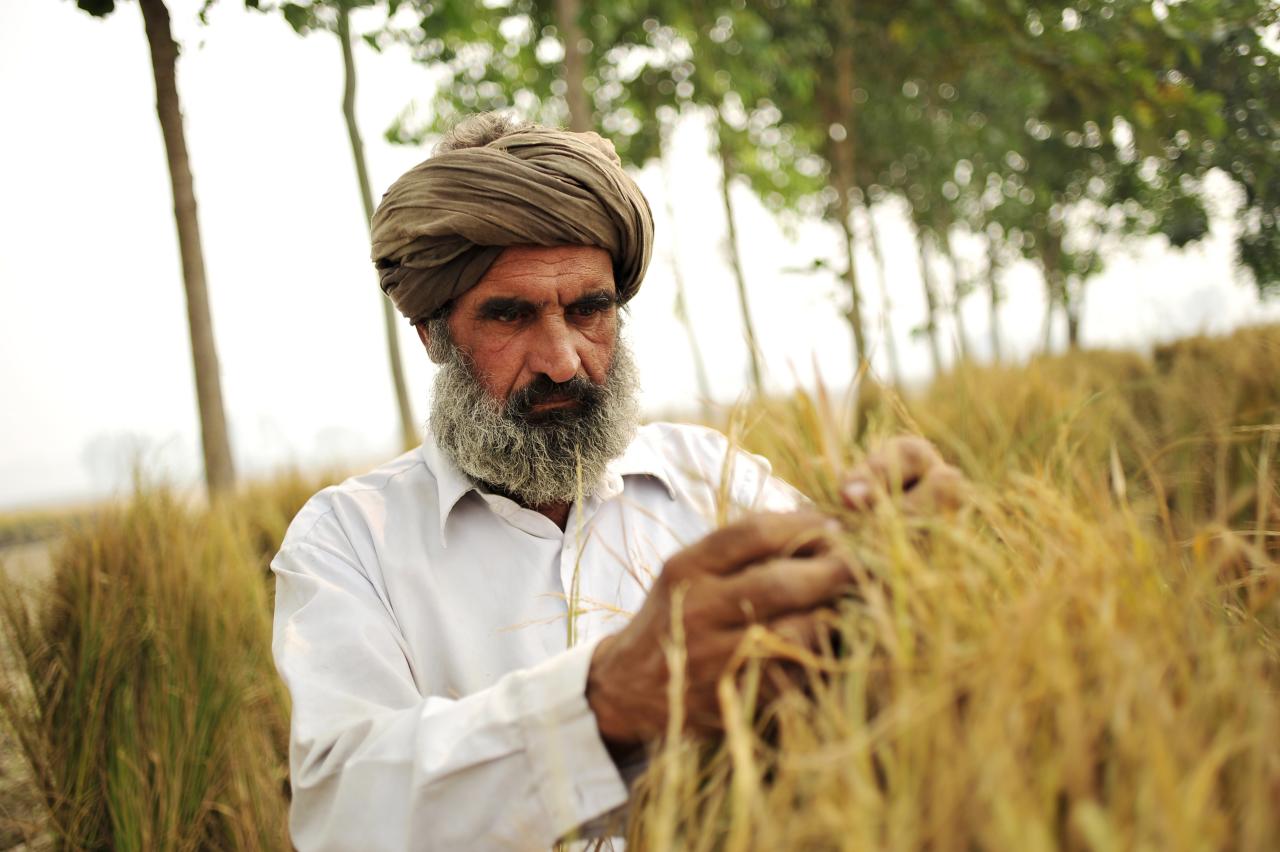by Selina Singh*
Thousands of Indian farmers have parked outside the capital Delhi for more than 100 days. They have pitched tents on five highways that lead to the city and say they will leave only when the federal government withdraws three new farm laws enacted last September.
Half the Indian population depends on agriculture for a living, and farms are almost entirely family-run. The protesting farmers fear these new laws will corporatize Indian agriculture. They may not know what happened to American farmers when Ronald Reagan was president, but what scares them is akin to what happened then—loss of income, more indebtedness, and the empowerment of a pillaging BigAg.
Most of the agitating farmers are from two Indian states, Punjab and Haryana. In both regions, federal and state governments buy up most of the staple food grain that farmers raise. The government also fixes the price of the grain it buys at a Minimum Support (or purchase) Price. To varying degrees of efficiency, this purchase system prevails in most Indian states.
Indian farmers, workers, and the poor depend on the purchase price and the government procurement system. For growers of rice and wheat, this price is a stable and assured source of income. Governments sell a part of the food grain they procure at subsidized rates. Roughly 800 million of the poor rely on this subsidy to be able to afford their food.
After introducing the new laws, the government assured farmers their income would double in two years. But farmers rejected the offer, saying they prefer the reliable MSP system over grand dreams of higher income. They say they will be ruined by the three new laws—the Farmers’ Produce Trade and Commerce (Promotion and Facilitation) Act, 2020, the Farmers (Empowerment and Protection) Agreement of Price Assurance and Farm Services Act, 2020, and the Essential Commodities (Amendment) Act, 2020.
Favors for Corporates
Farmers are afraid of these laws because they create a parallel agricultural market, one where there are no transaction taxes. The existing markets run by state governments charge a transaction tax (it is an 8.5 percent tax in Punjab) for their upkeep. If traders would move outside the government-regulated markets to operate in the tax-free open market, farmers expect it will undermine the MSP system.
Initially, farmers suspect, they may get higher prices for their produce from private traders or agro-giants than in the existing markets. But over time, the government-run markets would start failing. Then, say the farmers, they would be at the mercy of agribusiness giants.
The new laws also permit and encourage contract farming, wherein farmers would enter into contracts with companies that would commit to supplying seeds, fertilizer, and other inputs to farmers (or groups of farmers), in exchange for raising crops demanded by the companies at pre-fixed rates. Farmers fear this will have private companies impose stringent conditions on what crops they can raise and how. The risk of rejection of crops over “quality issues” would forever loom over them. They are anxious that contract farming could reduce them to workers on their land, raising crops at the instructions of companies that they enter into contracts with.
They resent that the law on contract farming is formulated in a way that the contracting company would control the input as well as the output of farming.
“Any company we enter into a farming contract with will supply us seed, fertilizer, pesticide, etc. So, our inputs will be under the control of the company. Existing retail stores will go out of business [as they cannot withstand competition from corporate giants]. Then, the grain we produce will also go to the same company,” says Joginder Singh Ugrahan, who heads the Indian Farmer Union (Ekta-Ugrahan).
It is the biggest farmer union in Punjab and represents the interests of small and marginal farmers. A small farmer owns up to 5 acres of land, while a marginal farmer owns less than 2.5 acres of land.
The new law on contract farming bars farmers from approaching civil courts if there are disputes. It says they can take out loans to finance their contractual obligations, but the government will recover arrears on land revenue from farmers who fail to meet contracted obligations. That, farmers say, means their land (and/or other assets) would be auctioned to recover what they owe. In other words, contract farming is luring farmers with higher returns but it could make them even more vulnerable than they are.
Continue reading
